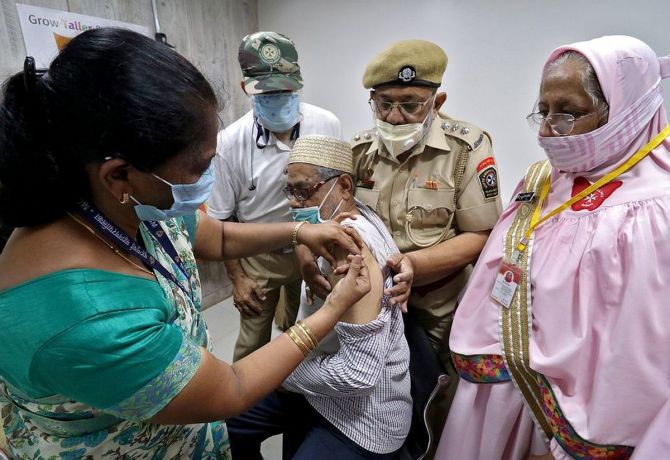The International Monetary Fund (IMF) said on Thursday that a multilateral response is critical to overcome the COVID-19 pandemic in India and globally as it hailed recent announcements by several countries to provide immediate support to India.

India is struggling with a second wave of the pandemic with more than 300,000 daily new coronavirus cases being reported in the past few days, and hospitals are reeling under a shortage of medical oxygen and beds.
"Our sympathy and condolences to the Indian people on the human tragedy that is taking place there as a result of the COVID-19 crisis.
“We continue to engage closely with the Indian authorities.
“We stand ready to strengthen that engagement and to scale up our technical collaboration," Gerry Rice, director, Communications Department of the IMF, told reporters at a news conference in Washington.
The human tragedy, indeed, is a stark reminder that the pandemic continues to be a grave threat globally, he said.
Responding to a question, Rice said the IMF is redoubling its efforts to foster global collaboration.
"We welcome the most recent announcements by several countries, to provide immediate support to India.
“We believe a multilateral response is critical to overcome the pandemic in India, and globally," he said.
Over 40 countries have committed to provide India urgently required medical supplies like oxygen-related equipment and critical medicines to help it deal with an unprecedented second wave of the coronavirus pandemic.
Observing that the human dimensions of this tragedy are uppermost on IMF's minds, Rice said the latest World Economic Outlook in April envisaged an economic recovery in India with growth projected at around 12.5 per cent in fiscal years 2021 and 2022.
"Of course, the recent upsurge in the COVID-19 cases imply that downside risks which we had also spoken of at that time are materialising.
“So, we are following these developments, very closely.
“And we will be revisiting that growth forecast in our World Economic Outlook update, which will be forthcoming in July,” Rice said.
"For India, it will be critical to continue with a coordinated policy response to fight the virus, including through accelerating the vaccination campaign, and providing fiscal resources to the health sector and social support to the most vulnerable.
“And those are the immediate policy priorities,” Rice said during his press conference in Washington.
Reiterating that everyone is watching what is happening in India with concern, Rice said the economic impact of it will really depend on the path of the pandemic, and how long the serious situation goes on for.
Responding to a question, Rice acknowledged that there will be spillover of India's economic situation in the neighbourhood as well.
This will be contingent on how deep and how long the severity of this crisis continues.
That's important to not just countries around India, but also to the global economy.
"There would be some impact there. In terms of our overall assessment, not just of India and the region but the global economy, but I don't have any specifics on that at this point.
“Again, the situation is unfolding. We're assessing it, and we'll have more to say at the time of the WEO update in July,” Rice said.
New coronavirus cases and deaths in India hit a record daily high with 412,262 new infections and 3,980 fatalities being reported, taking the total tally of COVID-19 cases to 2,10,77,410 and the death toll to 230,168, according to the Union health ministry data updated on Thursday.











 © 2025
© 2025